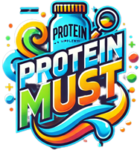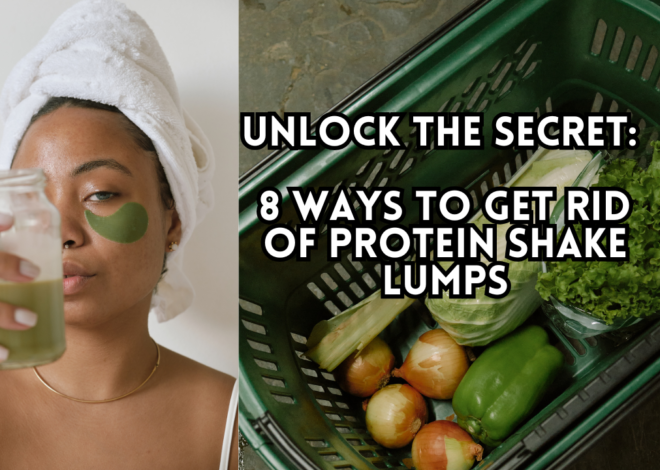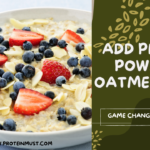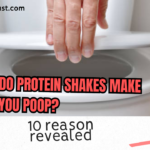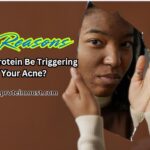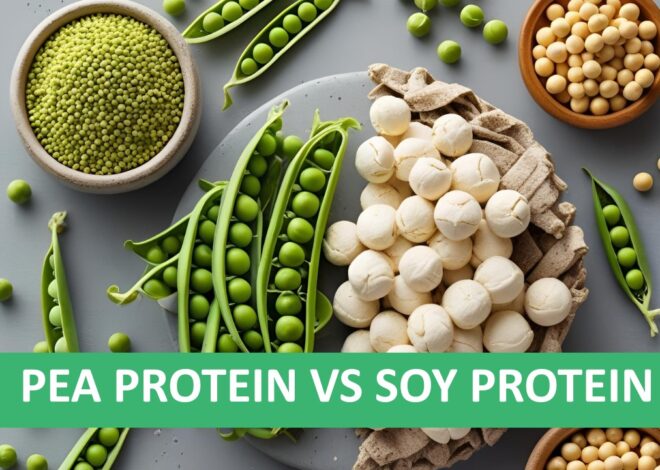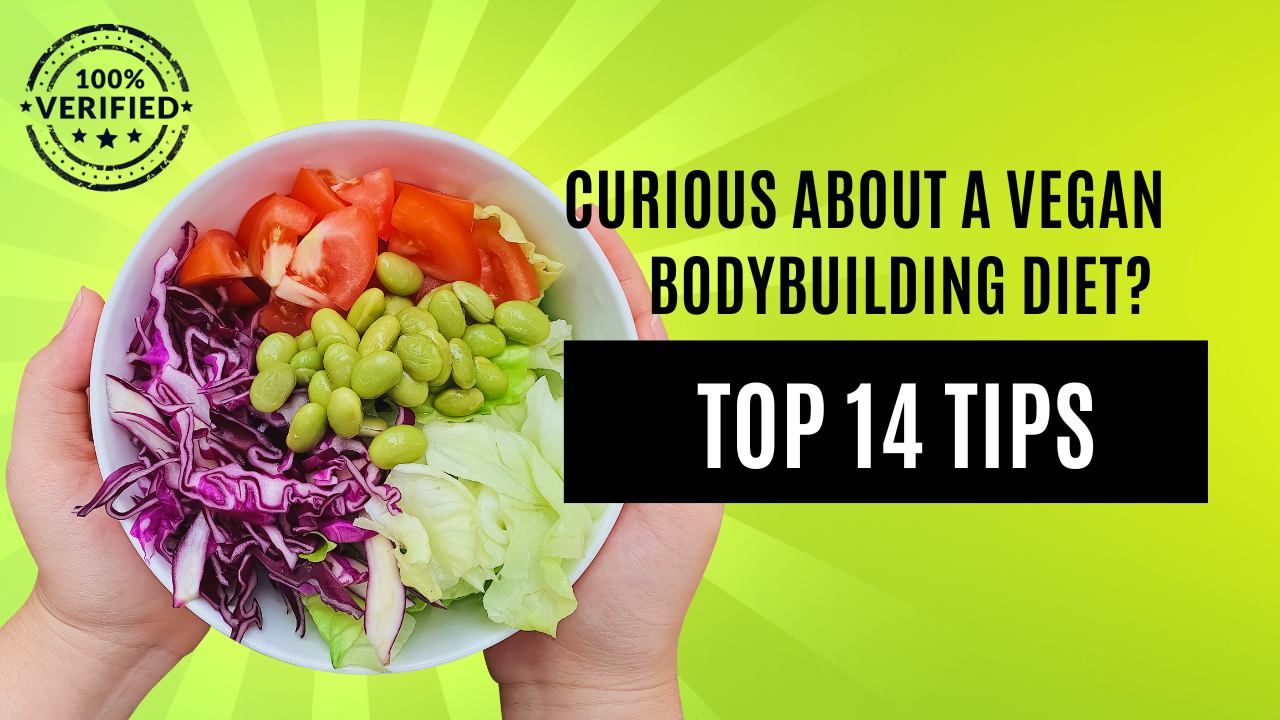
Curious About a Vegan Bodybuilding Diet? Here’s Top 14 tips What You Need!
In recent years, popularity around the Vegan Bodybuilding Diet has exploded as more people begin to adopt this way of eating. I first got into it after learning about the health benefits and strong ethics tied to animal treatment. The increasing number of those shifting to a vegan diet surprised me, especially when athletes and bodybuilders joined in. It’s not just about fitness anymore—it’s a lifestyle shift built on purpose. The interest from the general population reflects a real desire for change. What I noticed most was how the purported positives influenced this trend. The Vegan Bodybuilding Diet fuels you without compromise. It aligns with the values of anyone seeking better choices that don’t harm animals. Also read Top 7 Facts: Can Vegan Protein Powder Cause Constipation?
Vegan Bodybuilding Diet: Unlock Your Strength with Plants!
It’s absolutely possible to bulk up, add muscle mass, and hit new levels with a vegan diet. With small changes, your regular plan can shift into a focused bodybuilding approach. Whether you’re a bodybuilder, athlete, or aiming to improve your shape, the Vegan Bodybuilding Diet works. It’s excellent for fuel, performance, and total health. It provides essential nutrients to build and stay healthy while cutting harmful, animal-based products that are detrimental to long-term wellness. This article helped me create a balanced vegan diet for serious bodybuilding goals. The lifestyle shift offers real benefits for athletes of all types—and it’s sustainable. What’s crucial is following basic principles. Healthy eating habits should stay the same, even when your goals grow.
What is Ideal Vegan Bodybuilding Diet?
An ideal Vegan Bodybuilding Diet focuses on high-protein, plant-based foods to support muscle growth and recovery. Key components include legumes (lentils, chickpeas, black beans), tofu, tempeh, seitan, quinoa, and protein-rich grains. Incorporate a variety of vegetables, fruits, nuts, and seeds to ensure a balance of vitamins, minerals, and healthy fats. Supplementing with vegan protein powders like pea or rice protein can help meet daily protein goals. Ensure adequate intake of B12, iron, omega-3s, and calcium through fortified foods or supplements. Meal timing and consistency are crucial for optimal results. A well-planned Vegan Bodybuilding Diet not only supports muscle development but also promotes overall health and sustainability.

Understanding the concept behind vegan bodybuilding diet:
Vegan bodybuilding diet Definition
A vegan bodybuilding diet is based on plant-based foods, usually fruits, vegetables, grains, legumes, and nuts. This type of diet focuses on consuming high protein and healthy fats while eliminating animal products from the diet. It’s important to note that this isn’t a “quick fix” or “fad diet,” as it takes consistency and dedication to achieve substantial results.
Structure, Science, and What Makes It Work
A vegan bodybuilding diet is centered on helping bodybuilders grow their musculature through consistent resistance training and focused nutrition. Protein intake is crucial—ideally high, about 0.7–1.0 grams per pound or 1.6–2.2 per kg of body weight. A calorie surplus of 10–20% is beneficial for gaining muscle mass, especially if you’re past beginner training. Unlike traditional diets that use animal foods with high content, the vegan diet is devoid of animal products. The challenge lies in plant-based proteins, which are often lower in quality than counterparts and may affect muscle gain. Planning becomes essential to meet sufficient calories, protein, and micronutrients, especially during various stages like off-season, contest preparation, or fat loss phases. The Vegan Bodybuilding Diet can absolutely support strong results—with the right approach.
Best Protein Sources for a Vegan Bodybuilding Diet
Protein is an important part of everybody’s diet. It plays a crucial role in many fundamental processes, including keeping your red blood cells healthy. It’s even more vital to a vegan bodybuilder’s diet. That’s because protein is key to building and maintaining muscle mass
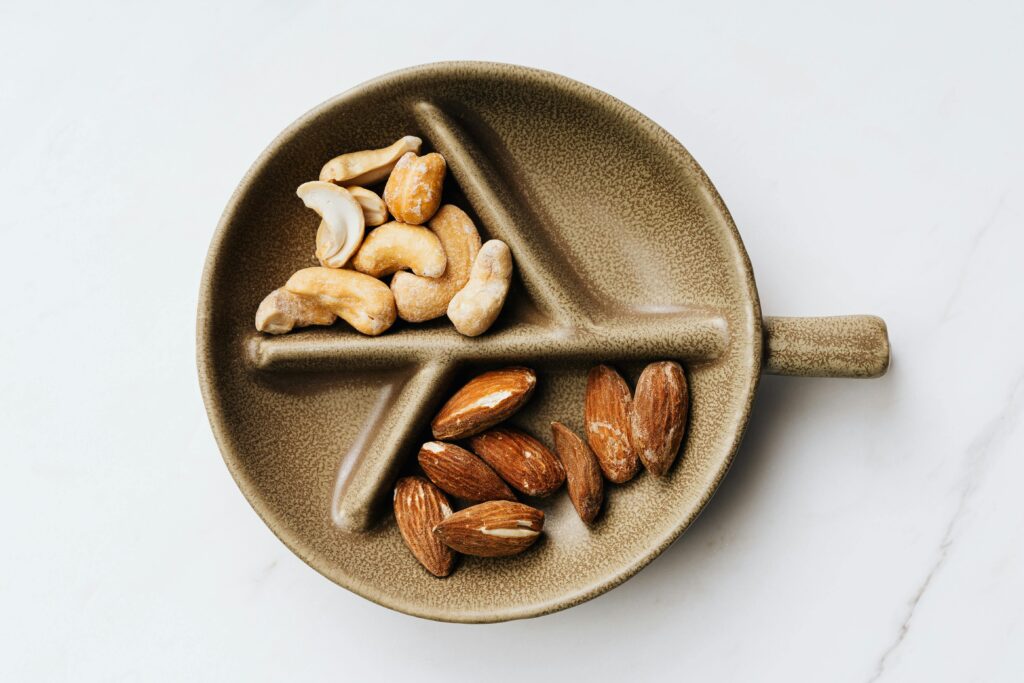
Fortunately, there are lots of vegan dietary elements rich in protein:
• Nuts and nut butters – including peanut, almond, and hazelnut
• Seeds – such as sesame, sunflower, chia, and flax
• Grains – like brown rice, oatmeal, quinoa, and bulgur wheat
• Beans – dried or otherwise, such as kidney, black, and soya
• Other pulses – such as chickpeas, green peas, and lentils
• Tofu or soya bean curd – condensed and solidified soya milk
• Tempeh – made from fermented soya beans and shaped into a block
• Seitan – a wheat derivative made of gluten
Best Carbohydrate Sources for a Vegan Bodybuilding Diet
An ideal Vegan Bodybuilding Diet emphasizes high-protein, plant-based foods for muscle growth and recovery. The following are great sources of carbohydrates to incorporate into your diet:

- Whole wheat bread
- Whole wheat pasta
- Barley
- Lentils
- Buckwheat
- Quinoa
- Chickpeas
- Black beans
- Oatmeal
- Sweet potatoes and yams
- White potatoes
- Brown rice
Tips to start your perfect Vegan Diet:
1. Plan Your Meal Times to Jump From Three to Six
The whole three square meals a day idea is one that’s drummed into most people from an early age. Changing that up completely to a five or six meal regimen will take a bit of getting used to. Planning the switch in advance makes the whole process simpler. Think about the shape of your day. When do you get up? When are you going to work out? What time do you normally go to bed? From there, you can plan your meal times to fit best with your natural routine.
2. Change Your Meal Cycles on Your Days Off
When you’re not training, your nutritional requirements are different. You don’t need as many calories to fuel your workouts. The best way to reduce your calorie intake is to change your meal cycle. It makes more sense than having your small meals even smaller.

On rest days or during cutting season, alter your meal cycle to include only five meals. It’s best to take away one of your afternoon meals and space the others out more widely. That way, you remove those unnecessary calories but you won’t feel hungry due to one excessive gap between meals.
3. Vary Your Diet to Make it More Interesting
With a vegan bodybuilding diet, you are viewing food as fuel. But that doesn’t mean what you eat needs to be boring. A well-balanced and optimized diet for bodybuilding can still contain interesting and delicious meals.
The snacks that are included in your meal plan also give you scope for creativity. Make yourself some tempting vegan treats and it can help make that hard work feel even more worthwhile.
4. Limit Your Snacks Between Meals
Speaking of snacking, eating outside of your six main meal times isn’t ideal. Given how closely spaced those meal times are, it’s not likely you’ll be too tempted to add extra snacks. If you do feel a craving for something, though, don’t be too hard on yourself. You can enjoy a sneaky snack from time to time, but the key is moderation. You should try to avoid eating outside of your main meal plan as much as you can. When you do add an extra snack, keep it as healthy as possible and don’t go over the top with the volume. Eat a small amount.
5. Stay Hydrated: Make Sure You’re Watered as Well as Fed
Hydration is also of paramount importance. Aside from protein shakes, which are key to any vegan bodybuilder’s diet, you’re best beverage options are water or green tea. Both provide the hydration you need and the latter has the added benefit of giving a natural energy boost.

It’s recommended that you drink at least 2 litres of fluid per day. You don’t need to measure out your drinks throughout the day, just keep yourself hydrated. Be sensible: drink when you’re thirsty, avoid unhealthy beverages, and you’ll be fine.
6. What to Eat When You’re NOT Training
Much as you may like to, you shouldn’t train all the time. You’ll need to include some rest days in your workout program to allow your muscles to recover. Even if you’re on a vegan diet, which has the benefit of shortening recovery times, these rest days are still vital.
7.Eating on Rest Days and Cutting Season
When you’re not training, your nutrition needs shift. On rest days or during cutting season, I adjust my meal plan by reducing meals to five per day. I focus on maintaining a balanced intake of protein, carbohydrates, and healthy fats while slightly lowering the fat proportion. It’s about tweaking my meal cycle to align with my lower calorie needs when not training.
9. Drink Plenty of Fluids
Given that a vegan bodybuilding diet tends to be high in fruits, vegetables, grains, and legumes, fiber intake can become quite high. When you significantly increase your fiber intake, certain side effects can arise, such as bloating, excessive flatulence, and abdominal pain. Drinking enough water is one way to help prevent complications from a high-fiber vegan diet. A minimum of 1 ml of fluid per calorie is a good place to start. For example, if you’re eating a 2,000-calorie diet, aim for 2,000 ml (68 ounces) of fluids. Still, keep in mind that your water needs may vary, especially when you’re exercising.
10.Train Yourself About Key Nutrients
Education is crucial for anyone following a vegan diet, especially for bodybuilding. Since the diet removes key food groups, there’s a risk of nutrient deficiencies. It’s vital to learn which foods provide the essential nutrients, so you can ensure your body gets everything it needs for optimal performance
11.Set Realistic Goals
It’s important to set realistic goals when starting out. Don’t push yourself too hard- focus on sustainable and achievable goals. This will help you develop a positive attitude towards vegan bodybuilding, rather than feeling overwhelmed and discouraged by how much work is required before you achieve your desired results. Make sure that you are sticking with your workouts, eating properly and not overindulging in snacks or unhealthy meals. If needed, set reminders on your phone or calendar so that you don’t forget to stay on track!
12.Get Enough Rest
Getting enough rest is just as important as working out in bodybuilding. Make sure you are getting 7-9 hours of sleep every night and taking occasional naps in between workouts if needed. Also, make sure not to skimp on eating before bedtime– this will help your body recover during the night so that you can be ready for your next workout!
13.Supplement Wisely
Supplementing with vegan-friendly vitamins and minerals can help provide your body with essential nutrients that might be missing from your diet. Specific vitamins and minerals, such as B12, iron, and zinc, may be challenging for a vegan diet. Consider taking natural supplements to fill any nutritional gaps in your diet if needed. Talk to a qualified nutritionist or naturopath to ensure you are getting all the right supplements for optimal health and performance.
14.Track Your Progress
Tracking your progress is essential when it comes to bodybuilding. Keep a food and exercise journal to stay on track and monitor your progress. Be sure to track what you are eating in order to ensure that your goals are being met! Overall, vegan bodybuilding can be an incredibly rewarding experience. With dedication and focus, it is possible to reach any goal.
Potential benefits of the vegan bodybuilding diet:
Reduces Heart Disease Risk
People following a vegan diet seem to be at a significantly lower risk of developing heart disease. This may be partly attributed to a reduced intake of saturated fats and cholesterol and a higher intake of fiber and various plant compounds. Traditionally, vegans tend to have lower blood pressure and levels of total and LDL (bad) cholesterol than the general population. Moreover, the vegan bodybuilding diet is high in fruits and vegetables, which contain a good amount of dietary fiber. High fiber intake has been associated with a lower incidence of stroke and heart disease.
Can Promote a Healthy Body Weight
Those following a vegan diet typically have a lower body mass index (BMI) than those following a traditional Western diet, which reduces the risk of several disease factors. One 16–week study looked at the effects of the vegan diet on 75 people with excess weight. It found the vegan diet to be more effective at improving body weight, fat mass, and insulin resistance markers than a control diet. Therefore, if you’re starting out on your bodybuilding journey with a bit of weight to lose, the vegan diet may be beneficial in that regard.
May Protect Against Certain Cancers
Following a vegan diet has been associated with a reduced risk of various types of cancer, compared with a traditional Western diet. This effect is likely due to the increased legume, fruit, and vegetable intakes associated with the vegan diet, which lead to higher fiber, micronutrient, and phytonutrient intakes. The vegan diet has also been linked to a reduction in BMI. A high BMI is another risk factor for certain types of cancer. What’s more, eating more soy, which is typical of those following a vegan diet, has been associated with a reduction in breast cancer risk in women. Lastly, various levels of processed red meat intake have been linked to a higher risk of colorectal cancer. This increased risk does not apply to those following a vegan diet.
Lower Cholesterol Levels
By cutting out animal-based foods, vegans reduce their total cholesterol levels and also lower their LDL (bad) cholesterol levels. Plant-based diets also boost your HDL (good) cholesterol levels, helping you maintain a healthy balance for optimal cardiovascular health. Studies have shown that vegans tend to have lower cholesterol levels than their non-vegan counterparts, which can reduce the risk of heart disease and other health issues.
More Energy
Eating a vegan diet can also provide sustained energy levels, as it eliminates processed and refined carbohydrates from your diet. This helps keep blood sugar levels steady throughout the day, avoiding the crash many people experience after consuming sugary or carb-heavy snacks.
Better Overall Health
Lastly, a vegan bodybuilding diet gives you more vitamins and minerals than most other diets offer. Plants are concentrated sources of antioxidants, fiber, and essential nutrients that can improve overall well-being and immunity. A vegan bodybuilding diet has numerous advantages for those looking to stay in peak physical shape while eliminating animal products.
Potential Downside of Vegan Diet
Can Increase Your Risk of Nutrient Deficiencies
The main downside of the vegan bodybuilding diet is an increased risk of several nutrient deficiencies. By excluding animal products from your diet, your intake of various essential nutrients is reduced — primarily calcium, omega-3s, iron, zinc, and vitamins B12 and D. You may need to take a vegan multivitamin to ensure proper intake of the above nutrients. Vegan omega-3 supplements are also available, which are usually made from algae. While these nutrients can be obtained from fortified vegan foods, nutrition education plays an important role when starting a vegan diet.
Higher Fiber Intake
Another potential downside of the vegan bodybuilding diet is its excessively high fiber intake. While a high fiber intake is generally considered healthy, consuming too much fiber can cause digestive issues, such as bloating, excessive flatulence, and abdominal pain. The recommended dietary fiber intake is 14 grams per 1,000 calories, which is around 25 grams for women and 38 grams for men. This amount is easily exceeded on a vegan diet. Excessive fiber intake can also lead to a feeling of fullness and reduced appetite. While this may be beneficial for some populations, it could limit bodybuilding progress if sufficient calories are not consumed.
Can Be Tough to Meet Protein and Calorie Needs
Given that a vegan bodybuilding diet mainly consists of nutrient-dense, high fiber foods, it may be difficult to meet protein and calorie needs without proper planning. Vegan diets tend to be lower in calories than traditional diets, due to the exclusion of many higher calorie, animal-based food items. Thus, following a vegan bodybuilding diet may make it challenging to eat more calories than your body burns to support your bodybuilding goals. This can be counteracted by increasing portion sizes, adding healthy fats to your meals, and eating cooked vegetables as opposed to raw ones to reduce their volume, which allows you to eat more of them.
May Be Overly Restrictive for Some People
By eliminating all animal-derived products, the vegan bodybuilding diet can be too limiting for some people. Though the selection and availability of vegan food has grown rapidly in recent years, the diet can be seen as slightly monotonous, compared with the traditional Western diet. Fortunately, the number of creative vegan recipes that can add life to the diet and keep it interesting is limitless.
5 days Vegan Diet plan:
Day 1
• Breakfast: protein oatmeal made with oats, vegan protein powder, soy milk, banana, and nut butter
• Lunch: tofu stir-fry made with extra firm tofu, vegan pasta, beans, red lentils, celery, onion, and spinach
• Dinner: teriyaki tempeh with broccoli and quinoa
• Snack: strawberry-banana protein shake
Day 2
• Breakfast: breakfast burritos made with tofu scramble and vegetables on vegan tortillas
• Lunch: lentil loaf made with lentils, kidney beans, veggies, and nutritional yeast
• Dinner: black-bean veggie burger with sweet potato fries
• Snack: peanut butter and oatmeal snack bars
Day 3
• Breakfast: hummus toast made with sprouted grain bread, hummus, hemp seeds, and sunflower seeds
• Lunch: vegan burrito bowl made with rice, beans, and homemade mock taco meat
• Dinner: sweet-and-sour stir-fry made with tofu, rice noodles, and vegetables
• Snack: mock tuna salad sandwich
Day 4
• Breakfast: chocolate-peanut-butter smoothie bowl made with bananas, peanut butter, almond milk, vegan protein powder, and cocoa powder
• Lunch: black bean and quinoa “meat” balls over whole grain vegan pasta
• Dinner: vegan chili with tofu mince, kidney beans, tomatoes, and red lentils
• Snack: roasted chickpeas with red pepper flakes
Day 5
• Breakfast: protein pancakes: made with whole grain flour and vegan protein powder with toppings of your choice
• Lunch: coconut-tofu-curry stir-fry made with tofu, soba noodles, and edamame
• Dinner: vegan sloppy joe made with lentils and veggies
• Snack: chocolate-peanut-butter protein shake
FAQs:
1. Can you build muscle on a Vegan Bodybuilding Diet?
Yes! With the right balance of plant-based protein, calories, and training, you can build muscle effectively on a Vegan Bodybuilding Diet.
2. What are the best vegan protein sources for bodybuilding?
Top sources include lentils, chickpeas, tofu, tempeh, seitan, quinoa, hemp seeds, chia seeds, and vegan protein powders like pea or rice protein.
3. How much protein do vegan bodybuilders need?
Most vegan bodybuilders aim for 1.2 to 2.2 grams of protein per kilogram of body weight daily, depending on training intensity and goals.
4. Do I need supplements on a Vegan Bodybuilding Diet?
It’s recommended to supplement with vitamin B12, and possibly omega-3s, iron, and vitamin D, depending on your dietary intake.
5. Is soy safe for vegan bodybuilders?
Yes, moderate soy intake (like tofu or tempeh) is safe and provides high-quality plant protein beneficial for muscle growth.
6. Can I gain weight on a Vegan Bodybuilding Diet?
Absolutely. Focus on calorie-dense whole foods, healthy fats, and protein-rich meals to support healthy weight and muscle gain.
7. What does a sample Vegan Bodybuilding meal look like?
A post-workout meal might include a tofu stir-fry with quinoa and vegetables, plus a smoothie with banana, almond butter, and vegan protein powder.
Conclusion:
The rising popularity of the vegan diet has gained attention from individuals across various fitness communities, including bodybuilding. Unlike traditional bodybuilding diets that rely heavily on animal protein, the vegan bodybuilding diet eliminates all animal-derived products, while offering a higher protein content than a typical vegan diet. Switching to this diet provides numerous health benefits, such as improved cardiovascular health and better digestion. However, the vegan approach also has its drawbacks for bodybuilders, such as the need for careful nutrient planning to ensure an adequate intake of protein, vitamins, and minerals.
